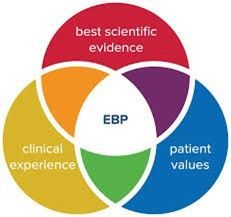A Sinker, A Swimmer, or a Flyer: Which is Your Organization?
Only a few organizations dare to make changes rather than wait for others to make them.

CEOs and Executive Directors in behavioral health organizations always have essential decisions. They are managing employee productivity while retaining and supporting employees. They achieve budget projections, strategic goals, and continuous quality improvement plans. But COVID threw all operations into a perfect storm, challenging leaders throughout the country.
One question remains as we navigate the continuing uncertainty of whether WFH (working from home) remains the standard or whether agencies return to their previous operations. This question pertains to how each agency perceives its survival in the next three to five years:
Are you a sinker, a swimmer, or a flyer?
A 2020 study taken on by Open Minds showed that, within three years, organizations show different patterns. 9% are flyers. That means they take the disadvantages and challenges of the industry and learn to thrive. They look for new business opportunities or modify their agency to meet the new challenges. They don’t stand by idly and wait for new contracts; they seek out potential payers, new services, or ways to maximize their cash flow.
17% of the organizations in the study are sinkers. They are drowning in negative cash flow, reduction in the census, and increased employee turnover, and they don’t know how they will hang on. These symptoms often occur because the organization is short-sighted; they stick to one program or business philosophy while things change around them. We see it here in California with the old-time group homes, many of whom closed rather than become STRTPs. They didn’t want to change and, as a result, were gone or will be gone. And the concept of merging is possible for some agencies. But when an agency merges out of necessity, it’s like going to the bank when you need a loan. You’re in a desperate and non-advantageous position.
And the rest, 74%, are swimmers. They are still making it, but that could be treading water or swimming. Most behavioral health agencies take this stance because they are afraid to move forward. When employees, board members, or leaders are stuck in the same place, they can make changes, but these are too small to make a significant difference in the company’s bottom line.
One company Praxes worked with had this debacle. The president of their board of directors approached us to do a needs assessment. They were a residential facility becoming an STRTP, but they couldn’t see future opportunities ahead. The president wanted to identify other business prospects. He was a successful head of a business, and as he saw, businesses need to profit and grow to stay alive. Yet he kept butting heads with the staff leaders who wanted the status quo. We would describe them as swimmers; they would survive but always be the “one-trick-pony,” relying on one county’s referrals for youths and not wishing to expand. After our needs assessment, we recommended that they look at utilizing their existing beds for managed care residential services. We also suggested they expand into behavioral health outpatient and foster care services since they had a great relationship with their county. These ideas would have improved their success in the future. The board liked the idea, but the agency leadership wasn’t on board. So, in the end, they are still swimming instead of flying.
As your agency moves forward, ask whether sinking, swimming, or flying is more of what you want to do in the next few years. It takes courage to fly, but it can improve your long-term success.




